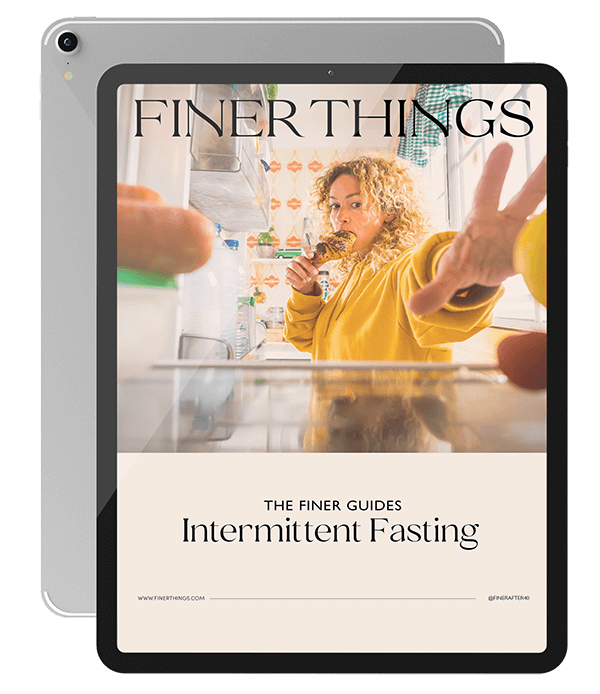The Brain Food Diet: How to Stay Sharp Over 40

By Franki Hanke
Turn to your fridge to support your brain function.
A healthy diet is an important part of supporting your health. Neuroscience research shows there are foods to boost your brain health. These diets slow the cognitive impairment of dementia and Alzheimer’s disease. That’s why this is the recommended food for Alzheimer’s Disease prevention. But, the health benefits of these foods do more than support cognitive function.
The MIND Diet
This diet is a hybrid combination of two plans: Mediterranean and Dietary Approaches to Stop Hypertension (DASH). The combination focuses on foods linked to improved cognitive function. Both the original diets help to improve cardiovascular health that affects brain health. Research shows following these diets lessens cognitive impairment. Specifically, they result in less decline due to Alzheimer’s disease in older adults. The following options represent food for Alzheimer’s Disease predisposed people that may help!
The MIND diet includes more plants and less animal and high saturated fat foods. It specifies eating berries and green, leafy vegetables.
The MIND Diet encourages you to eat these ten foods:
Green, leafy vegetables – Six+ Servings Weekly
Kale, spinach, cooked greens, and salads are universally what we should all be eating more of. No one eats enough veggies, especially leafy greens. If there was a “superfood”, it’d be a leafy green. These foods are high in phytonutrients linked with slowed cognitive decline. Vitamin K is also high in leafy greens.
All Other Veggies – One Serving Daily
Alongside the heavy emphasis on leafy greens, all other vegetables carry important nutrients. Focus on non-starches for more nutrients per calorie. The best options are broccoli, cauliflower, legumes, zucchini, and squash. Broccoli and cauliflower contain Vitamin C and choline, too.
Berries – Two Servings Weekly
With flavonoids and antioxidants, berries can slow cognitive decline. Research shows a focus on blueberries and strawberries.
Plus, upping your fruit and vegetable consumption can have an added benefits. Antioxidants are often thought to support the immune system. While the fiber content aids in blood sugar regulation. These foods support your immune system and nervous system, too.

Nuts – Five Servings Weekly
The MIND diet doesn’t specify the kinds of nuts, but eating a variety will introduce a variety of nutrients. Tree nuts like walnuts, almonds, pistachios, and pecan are a great go-to. These nuts have Vitamin E, folate, and fiber. Plus, they have anti-inflammatory omega-3 and omega-6 which help with oxidative stress.
Olive Oil – Use for Cooking
A core part of the Mediterranean diet, olive oil is considered one of the “healthy fats” sources. Opt for extra virgin olive oil specifically.
Whole Grains – Three Servings Daily
Whole-grain carbohydrates contain the most nutrients and fiber from the grain’s shell. Experiment with a variety of carbs. Try oatmeal, quinoa, brown rice, whole-wheat pasta and bread.
Fish – One+ Serving Weekly
Fatty fish provides omega-3 fatty acids like DHA. Fatty fish include salmon, trout, tuna, mackerel, and sardines. Salmon specifically contains Vitamin D and choline, too.
Beans – Four Servings Weekly
Beans, including lentils and soybeans, are high in flavonols. It’s a type of flavonoid that reduces learning and memory impairment.
Poultry – Two Servings Weekly
Chicken or turkey contains protein, B-vitamins, and minerals. Poultry, along with fish and soy, is important sources of all nine essential amino acids. Opt to roast or sear rather than fry.
Wine – One Serving Daily (Max)
Research shows red wine to be most beneficial. The reason is antioxidant polyphenols. These nutrients have neuroprotective properties that protect cognition.
As you add in these foods, any improvements are positive. You don’t have to follow the MIND diet perfectly to see any benefits. Following this a moderate amount is still associated with a reduced risk of Alzheimer’s Disease.
Foods to Avoid
Now, behaviorally, it’s easier to add in new foods than to remove existing habits. So, start adjusting your diet by adding in the encouraged foods, but as you continue to improve your diet here are the recommended foods to limit:
-Butter (and Margarine) – Use olive oil instead.
Get The Finer Life
Our Sunday email has tips and content you will love – exclusively for our subscribers.
"*" indicates required fields
-Cheese – Add in flavor with herbs instead.
-Red Meat (Beef, Pork, Lamb) – Use poultry or fish instead.
-Fried Food – Opt for other cooking methods.
-Pastries and Sweets – Enjoy as a treat.
Mediterranean Diet
This diet attracted attention in the 60s when Mediterranean countries had lower rates of fatal coronary heart disease than the United States and Europe. It’s often recommended for heart health or lowering cholesterol. The ideas from the MIND diet are largely the same, but the main tenants of the Mediterranean Diet are:
-Focus on plants, not meats for centering meals. Red meat is not common.
-Weekly intake of fish. Specifically, fatty fish are best.
-Healthy fats like olive oil, seeds, and nuts.
-Eat more vegetables and fruits. Seven to 10 daily servings are recommended.
-Use herbs and spices rather than salt for flavor.

Dietary Approaches to Stop Hypertension (DASH)
Created to aid in lowering blood pressure, the DASH diet aids hypertension and prehypertension. The DASH diet includes the same food recommendations as the MIND diet but differs at a few points.
-Dairy two to three servings a day for Calcium, Vitamin D, and protein.
-Fruit four to five servings a day for fiber, potassium, and magnesium.
-Lean meats are included for protein, B Vitamins, iron, and zinc, but in limited amounts.
The DASH diet suggests cutting back on sodium alongside the foods above. Opting for no-salt or low-sodium options and flavoring with herbs rather than salt can help support the DASH diet.
Ultimately, these three diets share core ideas. If you’re going to start somewhere, start with eating extra veggies and using olive oil as your cooking oil. From there, continue integrating changes to keep your brain healthy.
The above content may contain affiliate links. Finer Things earns from qualifying purchases. When you click and shop, we receive a small commission to support our writers.

Want a Free Guide?
You will receive our free 19-page guide and access to our exclusive content, private invitations, and tips you’ll love.
"*" indicates required fields
Facebook Group